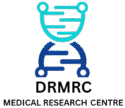Most Americans unaware of cancer risks associated with drinking alcohol, study finds
Alcohol is a leading preventable cause of cancer, but public awareness of the connection remains strikingly low in the U.S., with just 40% of American adults recognizing alcohol as a cancer risk, according to a new study from The University of Texas MD…
